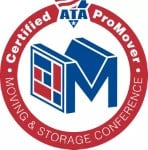In June 2022, for the first time in history, the average monthly rent in Manhattan exceeded $5,000, according to New York’s ny1. Queens broke a few records of its own too, as did Brooklyn — with a studio apartment there, on average, going for roughly $3,000 a month. This trend of increasing real estate prices actually applies to New York State and all of its 49 neighbors. But renting in New York City today can be especially costly. And with numbers like that, it’s no surprise that the words “security deposit” carry some particularly serious weight in NYC. Losing even a portion of the deposit can be — to put it mildly — unpleasant. So if you’re thinking of moving out with your security deposit in hand, here are some things you should know. Plus a step-by-step guide on how to get your security deposit back in NYC with relative ease.
What Is A Security Deposit?
Simply put, it’s a sum of money you give to a landlord before moving into a place as an incentive for you to make sure that the place stays intact while you’re there. The landlord hangs onto it throughout your tenancy. Most New York landlords will customarily require the first month’s rent and a security deposit for you to move in. If all goes well, the deposit is reimbursed in full at the end of your lease. So if you’ve taken good care of the place, complied with all the terms of the lease, and have no unpaid rent or outstanding bills, you should be good. If you’re in good standing with your landlord, it’s also not uncommon to get your deposit back even if you move out before the end of lease. Just make sure you talk it over with them and give sufficient warning.
Where Does My Security Deposit Go When I Move In?
With single-home properties, that’s generally up to the landlord. It’s your responsibility to make sure you’re entitled to get your deposit back in full, and it’s your landlord’s responsibility to keep it safe. According to the NY Attorney General’s Residential Tenants' Rights Guide, landlords of buildings with six or more apartments must not only put all security deposits in an interest-bearing account in a New York state bank but also notify each tenant of the name and address of the bank, as well as the amount of the deposit, in writing.
Co-ops and other larger properties in NYC usually have their own unique sets of rules and regulations when it comes to security deposits, often enlisting management companies or other third parties to help ensure everything is in good shape — physically, financially, and legally speaking. Administrative fees are, therefore, not uncommon. You can consult your real estate agent, lawyer, and/or enlist the support of various community renewal programs to ensure that you know your tenant rights, what your security deposit entails, and — most importantly — that you get it back. So familiarize yourself with your specific situation, study the paperwork, talk to people, and ask questions.

Does NY Law Limit The Amount Of Security Deposit A Landlord Can Charge From A Tenant?
Like most places, the amount of a tenant’s security deposit in NYC is determined by the landlord, but traditionally it’s equivalent to one month’s rent. Furthermore, as per the Residential Tenants' Rights Guide, “at the beginning of their tenancy, all tenants can be required to give their landlord a security deposit, but it is limited to no more than one month's rent. The one-month limit means that a landlord cannot ask for last month's rent and a security deposit.” So basically you’re looking at two months’ rent max. However, NYC rental laws are ever-changing, so we recommend you double-check the latest info online, consult with a lawyer, or do both if possible.
What Can I Do If My Landlord Does Not Return My Security Deposit in NYC?
Even if you did everything right, getting your deposit back is not always a guarantee. If you feel that you’ve lived up to your agreement and left the place as you found it but are not getting your money back, then it may be wise to seek legal advice. But first, make sure that you have your deposit return request in writing – giving your landlord a letter clearly detailing the facts of the situation, your legal rights, what you want, and your intent to sue. And keep copies of said letter. Sometimes, involving a third party that knows the law and/or providing a written request may actually be enough to cause your landlord to act. If all else fails, however, you can take your landlord to small claims court or file a complaint with the Bureau of Consumer Frauds and Protection. In which case, you’ll want to start preparing your records and all the necessary paperwork (bills, photos, etc.)
What Can A Landlord Deduct From A Security Deposit?
Ideally, there is no significant damage to your place, your landlord agrees, and that’s that. However, if there is damage or any outstanding debts owed, your landlord should provide an itemized statement detailing any deductions from the deposit, with the specific amount for each deduction next to each item. The itemized statement should be provided in writing. It may include things like unpaid (or increases in) rent, repairs, bills, cleaning, and so on. Normal wear and tear should not be an issue; still, what constitutes “normal” in this case may be open to interpretation. It’s vital that you know the terms of your lease front to back, that you make a visual and written record of the condition of the place before you move in, and that you share it with your landlord (and maybe a third party) so you can reference it whenever necessary.
How Long Does A Landlord Have To Return A Security Deposit?
Under New York law, a landlord must return your security deposit within two weeks of you moving out. So after you have vacated the property and returned the keys, your landlord has 14 days to check the property and give you your money back. You can also come to an alternative, mutually beneficial understanding.
When Can A Landlord Keep The Security Deposit?
Your landlord may keep some or all of your security deposit if there are any damages beyond normal wear and tear (and subsequent repairs, cleaning, and/or renovation services.). You also risk losing your deposit if you leave your lease early, or if there are outstanding bills and/or unpaid rent. These things will usually be specified in your individual contract and can be somewhat vague. Read everything carefully, keep a line of communication with your landlord throughout your tenancy, remember to ask for an itemized statement if there are partial deductions, and ask questions when in doubt.
Step by Step Process of Getting Your Security Deposit Back
1) Think ahead.
Make sure you know what you're getting into before moving in. Go see the place in person, and bear in mind that a simple walk-through is not enough to assess the condition of your new home. Examine every nook and cranny, make a checklist, document all existing damage (including things that might potentially break), take photos and videos for your records, and save and make copies of all of the above. And, of course, study all the necessary documentation carefully, read the fine print, and get a second opinion before signing anything. And make sure to hire reliable movers in NYC like Oz Moving & Storage — both when moving in and out — so as to prevent any unpleasant surprises.
2) Know your rights.
Familiarize yourself with the current New York laws, your subsequent rights as a renter/tenant, and the specific requirements of your individual contract/lease. Since June 2019, the Housing Stability and Tenant Protection Act has made things a little easier for renters in NYC. Still, many renters and landlords are often simply unaware of their full rights and legal obligations. And this might lead to an unpleasant situation with your deposit. Don’t be one of these renters; do your homework, do things by the book, and get things in writing.
3) Get a guarantor.
This not only assures your potential landlord that someone else has faith in you (and/or that he’ll be paid on time), but it is also a practically good call if you know you might face financial difficulties during your tenancy. In fact, many NYC landlords will actually require a guarantor as part of their rental agreement. But, either way, having a family member or friend help you out if necessary means rent will be paid on time, you avoid the threat of eviction, and your deposit is generally more likely to be returned.

4) Do your part.
Aside from having a visual and written record of the condition of your home when you move in, it’s equally important that you stay vigilant throughout your tenancy. Document any occurring problems (i.e., damages, mishaps, etc.). Verify and share these, along with any modifications and repairs, big or small, that you make and/or are thinking of making, with your landlord in a timely fashion. Report issues, get things in writing when necessary, and keep an ongoing line of communication. Don’t throw too many wild parties, update your checklist frequently, and use common sense. In short, try to see things from a landlord’s perspective and take good care of the place.
5) Communication is key.
Civility, kindness, sincerity, and transparency can go a long way — so make sure you maintain a good relationship with whomever you’re paying the rent to. Being on the same page and in good standing with each other is essential when it comes to both parties feeling like your tenancy was worthwhile. It will more than likely ensure not only that you both — aside from being exemplary New Yorkers — have peace of mind after you move out, but also that, when it comes to your security deposit, you are, in the end, paid in full.









